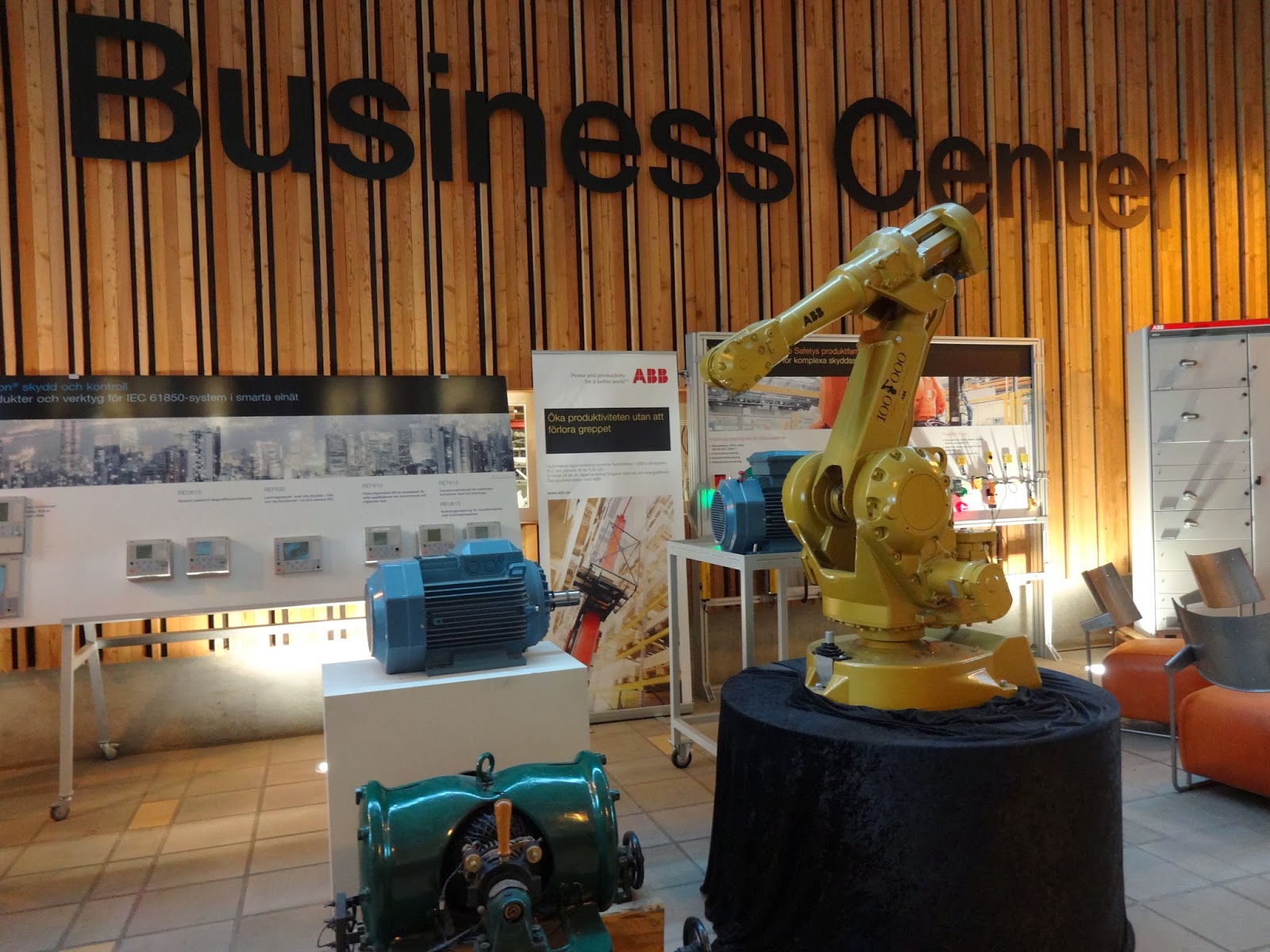We met with Martin Lundh, who is a group manager. He’s been working
there for six years. WirelessCar is a telematics service provider; they used to
be focused on the product side of the business, but now they are switching to
become a service company. They have two million vehicles in 50 countries and
are on four continents. The company was founded in 1999 and is now branded with
the Volvo Group. Some of their customers include: BMW, Volvo, Audi, Sprint,
Allianz, Chrysler, FIAT, and Qoros. Currently though, there are only five
percent of cars in the world that are connected with technology such as this.
Some of the threats WirelessCar faces are that consumer electronics can be
expensive, Internet isn’t free, and smart phones are already connected.
Opportunities they have are that consumers like this type of technology
service, it will benefit carmakers and make them more money, and it’s cost
efficient.
 The company’s vision is to connect people and their cars to
basically everything. We watched a video that gave scenarios of when this type
of service would be used. The first example was if you get into a car accident
your car will send information about the accident to authorities and other cars
to warn them about the dangerous road conditions in that spot so they can slow
down, it will also get road side assistance to show up and help, as well as,
get an appointment as soon as possible at a repair service. Then, the car
driver would get a notification for a discount at their favorite café to get a
coffee while they wait for their car to be fixed. Another scenario he gave us
was if a woman goes into labor, she gets in the car and the seatbelt can
monitor the health of her and the baby, then as she’s on her way to the
hospital the car notifies the hospital that she’s coming and gets priority at
stop lights to get there faster. This technology will truly change the future.
The benefits of it are that it will increase car dealers’ revenue, increase
customer loyalty at those dealerships, decrease costs of warranties, and
decrease the costs to the customer because they will have less repairs and it
will be safer to drive.
The company’s vision is to connect people and their cars to
basically everything. We watched a video that gave scenarios of when this type
of service would be used. The first example was if you get into a car accident
your car will send information about the accident to authorities and other cars
to warn them about the dangerous road conditions in that spot so they can slow
down, it will also get road side assistance to show up and help, as well as,
get an appointment as soon as possible at a repair service. Then, the car
driver would get a notification for a discount at their favorite café to get a
coffee while they wait for their car to be fixed. Another scenario he gave us
was if a woman goes into labor, she gets in the car and the seatbelt can
monitor the health of her and the baby, then as she’s on her way to the
hospital the car notifies the hospital that she’s coming and gets priority at
stop lights to get there faster. This technology will truly change the future.
The benefits of it are that it will increase car dealers’ revenue, increase
customer loyalty at those dealerships, decrease costs of warranties, and
decrease the costs to the customer because they will have less repairs and it
will be safer to drive.  |
| Bert, Product Manager |
Then, we went to ABB for the afternoon. There we met with
Bertil Thorvaldsson, the Global Product Manager. A year ago in J.J.’s marketing
class we Skype with Bert, so it was nice to meet him in person. Bert works for
ABB Robotics as Product Manager; there are over 150,000 employees, they have $39 billion in
revenue, and are present in over 100 countries. ABB is a global leader in power
and automation technologies. They have manufacturing in Europe, Asia and
America. ABB introduced painting robots in 1969 and the world’s first
commercially available electronic robot in 1974. There are over 200,000 robots
installed worldwide! Their product line consists of robots, application
equipment, software (Bert’s area), manufacturing cells, and automotive systems.
That night we went to the Frolunda Indians hockey game. We
had great seats in the corner next to the “crazy” fans. They were chanting and
playing a drum the entire game. They were winning 1-0 until the third period
when they let up one goal, so it went into overtime and then a shootout, which
then we ended up losing 2-1.










No comments:
Post a Comment